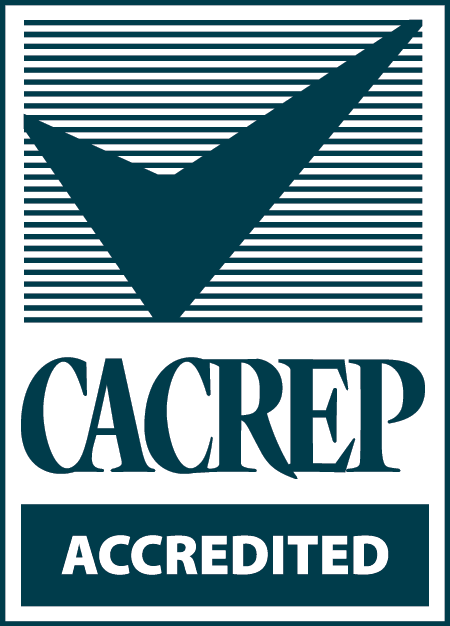Counselor Education
Learn about the Counselor Education program
- Home
- Departmental Directory
- Education
- Department of Leadership and Counselor Education
- Counselor Education
CACREP Accreditation
Accreditation
Our master’s and doctoral programs are accredited by the Council for Accreditation of Counseling and Related Educational Programs (CACREP), a specialized accrediting body that grants accreditation to graduate level programs in professional counseling.
Our Clinic for Outreach and Personal Enrichment (COPE) is also accredited by CACREP. 
Prospective students are encouraged to visit www.cacrep.org to better understand the importance of choosing an accredited program as this is becoming increasingly important for individuals who may eventually seek licensure in another state and has been identified as a requirement by some third party payers for insurance reimbursement rights.
*Note: CACREP does not offer accreditation for Ed.S. programs.
| M.Ed in Clinical Mental Health Counseling | M.Ed in School Counseling | Ph.D. in Counselor Education and Supervision | |
|---|---|---|---|
| # of Applicants | 70 | 10 | 3 |
| # of Currently Enrolled Students | 32 | 8 | 7 |
| # of Graduates in Past Year | 15 | 3 | 1 |
| Completion Rate | 100% | 100% | 100% |
| Licensure/Certification Examination Pass Rate | 100% | 100% | N/A |
| Job Placement Rate | 100% | 100% | 100% |
Meet the Faculty/Staff of Counselor Education
Richard Balkin
- Chair and Distinguished Professor of Counselor Education
Kenya Bledsoe
- Associate Professor of Leadership and Counselor Education
Melanie Burgess
- Associate Professor of Leadership and Counselor Education
Alexandria Hodges
- Associate Professor of Leadership and Counselor Education
Franc Hudspeth
- Clinical Associate Remote Professor of Leadership and Counselor Education
Stephanie Lusk
- Professor of Leadership and Counselor Education
Amanda Winburn
- Director of Graduate Studies and Professor of Counselor Education
-
Counselor Education Graduate Info Session
Not sure where to start with Counselor Education? Check out our virtual information session!
Watch Graduate Information Session Video
Degrees in Counselor Education
GRAD
Earn your M.Ed. in Counselor Education to become either a clinical or school counselor and empower individuals in diverse settings.
- Oxford
GRAD
Prepare for a district-level leadership position. Become a school counseling leader who uses data, builds partnerships, and advocates for all students in K-12 settings.
- Online
GRAD
Hone the clinical, teaching, and research skills needed to become an effective counselor educator.
- Oxford
GRAD
Learn to use Play Therapy to help children express themselves, improve mental health, and progress developmentally.
- Online
FAQ: Counselor Education
Counselor Education degree programs are offered residentially at the UM Oxford campus and regionally at the UM Tupelo and UM DeSoto campuses.
Yes! You can receive the same M.Ed. in Counselor Education degree at any of our affiliated campuses.
For full-time students, the cohort program is designed to be completed in 2 years with students taking courses in the Fall and Spring semesters, and Summer and Winter intercessions.
Students taking nine credits in each of the Fall and Spring terms (three classes per semester) are considered enrolled full-time.
Our program is flexible with part-time and full-time enrollment available. The majority of our students are full-time. They work during the day and attend classes in the evening. We have approximately 5% of students in our programs who are part-time.
Classes are offered during the Fall, Winter, Spring, and Summer terms. The 15-week Fall and Spring courses meet once a week in the evenings, typically starting at 4:30 PM or later to accommodate working students. Winter and Summer classes have a different schedule because they are shorter terms.
Our class size vary. Track-specific courses are smaller and have anywhere between 5-15 students, meanwhile core courses may have about 20-25 students.
You can view the application walk-through video here.
In order to be considered for admission, applicants must submit all required materials by the March 1 priority deadline.
- See the respective program pages listed above for current application requirements and deadlines.
- Submit Counselor Education reference forms here.
Phase I Admissions
Phase I of the admissions process consists of a review of application materials. At this phase, applicants will either be denied admission to the program or will be promoted to Phase II of the admissions process.
Phase II Admissions
Phase II of the admissions process consists of an interview process. Applicants who are invited for an interview will participate in a three hour process which will include an informational session, interview with faculty members, and an opportunity to interact with and ask questions of currently enrolled students. At this phase, applicants will either be denied admission to the program or will be offered admission to the program.
